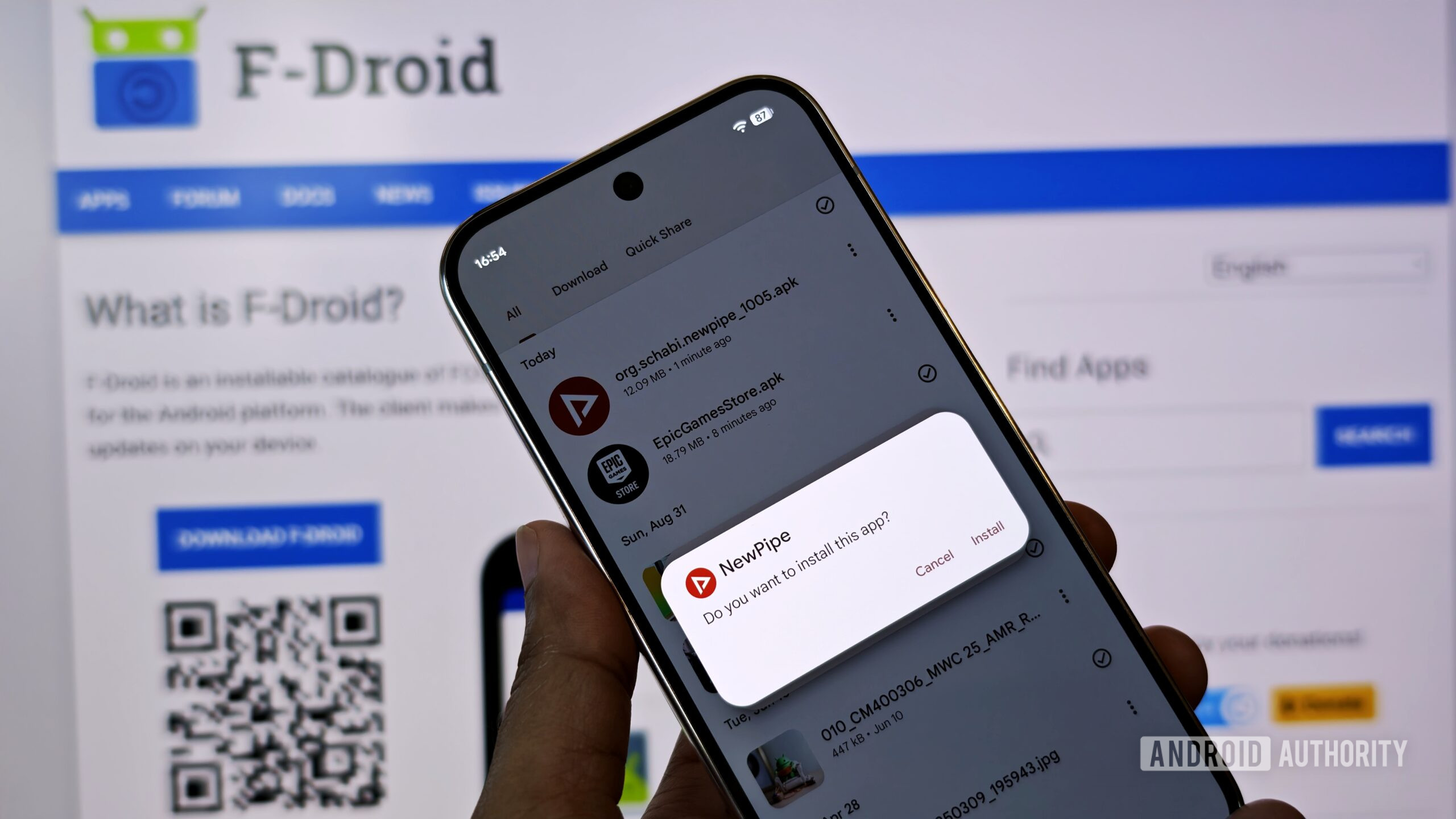Google: “Based on this feedback and our ongoing conversations with the community, we are building a new advanced flow that allows experienced users to accept the risks of installing software that isn’t verified. We are designing this flow specifically to resist coercion, ensuring that users aren’t tricked into bypassing these safety checks while under pressure from a scammer. It will also include clear warnings to ensure users fully understand the risks involved, but ultimately, it puts the choice in their hands.”
Thank god. I would’ve ditched Android for good if this went through, and while it sounds like it would be annoying for casual users to enable unverified apps, at least we can still install them.



True, but what I’m saying is there is an open model. If another community of devs wan’t a “Linux-based mobile OS”, they can fork AOSP like Graphene did. IE complain about Google, not Android.
Graphene works. No tracking, tons of FOSS and commercial apps, it just lacks some banking apps. One gap, vs all that exist between now and another Linux phone.
LineageOS is another option for other phones, also far ahead of other Linux ideas.
Yes, but you can expect almost no useful updates from AOSP anymore, which means it’s up to groups like those who develop GrapheneOS to keep up with what people expect while Android ostensibly keeps advancing, and they only support one hardware line.
Yes, but in 12 months a Linux phone won’t even be close to where even 4 versions ago Android is. As long as Graphene (or Lineage, or Fairphone, plenty of models) keeps the security updates covered, there are good options out there.
So the question becomes when, not if, a Linux phone reaches parity with AOSP-based phones.
Android basically is a Linux phone, it’s a distro(ish).
It has a Linux kernel and a Linux-based OS wrapped around it. And just like you can compile FreeCAD for Debian or Arch, you can compile Fossify for Google Android, GrapheneOS, or LineageOS.
“Linux” phones in the sense you mean won’t be a “Debian” or “Arch”, they’ll be something else, just like Android.
Can I compile FreeCAD for Android? Can I run Linux apps that are compiled for ARM on Android? As far as I know, no. So it’s even less Linux than MacOS is BSD, and how is that helping for software freedom, or placing the control of the phone you bought in your hands?
Huh?
Control of your phone does not equal Linux. Plenty of FOSS OS’s do that (including Android). And Android 16 brought Linux app support with GPU acceleration if you’re into that and want FreeCAD on your phone.
Android isn’t FOSS, AOSP is. If you keep conflating that, I’m not sure what you’re getting at. And having a sandbox or VM that allows you to run Linux apps is not the same as having native support. That would be like saying Windows had Linux support 20 years ago because VMWare existed.
And no, control of your phone doesn’t equal Linux, but native support for a FOSS OS at the base level means that if the maintainers decide to go in a different direction, you can more easily part ways with them. AOSP used to be a more complete version of Android, but that has been clawed back repeatedly as Google transfers functionality to Google Play services and elsewhere, which has caused difficulties for LineageOS and GrapheneOS to be maintained over the years, including Graphene exploring moving to another device for support from the one line of devices they support now.
Clearly, this isn’t solely the fault of Android and Google, hardware vendors bear a lot of blame, as well as their desire to exert more control over their customers. But Google and Android have the exact same issue and certainly won’t be pressuring hardware vendors to open up their standards.
Uhh no? Android is open source, from The Open Source Alliance. You’re conflating Google’s version of Android (Android + Google Mobile Services) with Android.
Android is Apache2 + GNU for the kernel. GMS is proprietary.